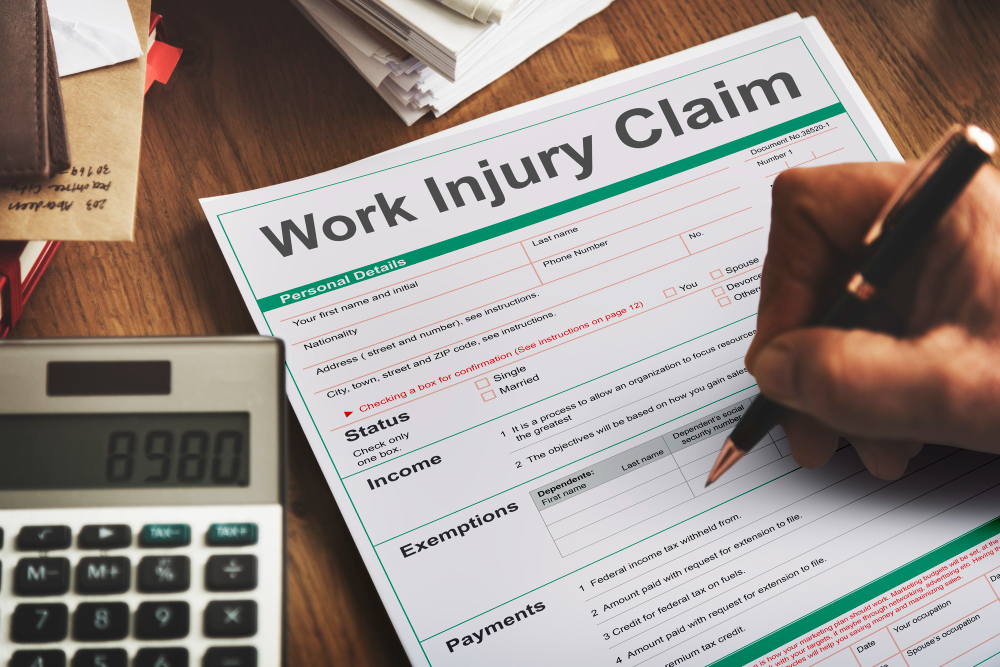Workers’ compensation is a type of insurance that helps out employees who get hurt or sick because of their job. It covers their medical expenses, lost wages, and rehabilitation costs. In most cases, workers’ compensation claims are straightforward and get approved easily. However, there are times when the claim may be denied.
If your workers’ comp claim got denied, don’t stress. You may be wondering what steps you should take next and how to ensure that you receive the benefits you are entitled to. Here, we’ll look at what to do if your workers’ compensation claim is denied and how you can appeal the decision.
Reasons for a Denied Claim
Before we look at the steps you should take after a denial, it’s important to understand why your claim was denied in the first place. Here are a few common reasons why a claim might be denied:
- Lack of proper documentation: One of the most common reasons for a denied workers’ compensation claim is that there is not enough evidence to support it. This could include missing medical records, incomplete accident reports, or insufficient proof that your injury or illness is work-related.
- Failure to report the incident promptly: In most cases, you are required to report any workplace injuries or illnesses within a certain time frame. If you don’t take care of this, your claim could be denied.
- Pre-existing condition: If your employer can prove that your injury or illness was caused by a pre-existing condition rather than by work-related factors, your claim may be denied.
- Lack of medical treatment: Your employer may argue that your injury or illness is not severe enough to require medical treatment, therefore, your claim may be denied.
- Misconduct or violation of company policies: If it can be proven that your injury or illness was a result of your own misconduct or violation of company policies, your claim may be denied.
These are some common reasons workers’ compensation claims get denied, but every case is different, and the outcome can depend on a lot of factors. If your claim was denied, it’s a good idea to talk to an experienced workers’ compensation attorney for advice.
What to Do If Your Workers’ Comp Claim Is Denied
If your workers’ compensation claim has been denied, you have the right to formally appeal the decision. Here are the steps you can take to file an appeal and potentially receive the benefits you deserve.
Understand the reason for denial

Before you can appeal a denied workers’ compensation claim, it’s important to understand why your claim was denied in the first place. Common reasons for denial include missing deadlines, lack of sufficient evidence or documentation, and pre-existing conditions not related to work. Knowing the specific reason for denial will help you build a stronger case when filing an appeal.
Gather all necessary evidence
To strengthen your case during the appeals process, it’s important to gather all necessary evidence to support your claim. This may include medical records, witness statements, and any other relevant documents that prove your injury is work-related.
File an appeal with the appropriate agency

Each state has its own workers’ compensation appeals process, so it’s important to research your state’s specific procedures. Typically, you will need to file an appeal with the state workers’ compensation agency or board within a certain time frame after receiving the denial letter.
This time frame can vary, but it is typically within 30-60 days. Make sure to carefully follow the instructions for filing an appeal and provide all necessary documentation.
Seek legal representation
If your appeal is denied, it may be beneficial to seek legal representation from a workers’ compensation attorney. They can help guide you through the appeals process and ensure that your rights are protected.
Additionally, they may be able to negotiate with the insurance company on your behalf to reach a fair settlement or take your case to court if necessary. Having a lawyer on your side can greatly increase your chances of success in appealing a workers’ compensation claim denial.
Consider alternative options
In some cases, you may have other options besides filing an appeal. For example, you may be able to file a complaint with your state’s workers’ compensation board or seek assistance from an ombudsman. It’s important to explore all avenues available to you before deciding on the best course of action.
Seek support
Dealing with a denied workers’ compensation claim can be emotionally and financially stressful. It’s important to seek support from friends, family, or a professional counselor to help you cope with the situation. You can also join support groups or online communities for individuals going through similar experiences.
I saw many people who could not bear the burden of a denied claim, and it greatly impacted their mental health. Seeking support can provide you with a safe space to express your feelings and find comfort in knowing that you are not alone.
Take care of yourself

Dealing with a denied claim can take a toll on your physical and mental well-being. Make sure to prioritize self-care by getting enough rest, maintaining a healthy diet, and engaging in activities that bring you joy. This will not only help you cope with the stress but also aid in your recovery from any work-related injuries.
Learn from the experience
While dealing with a denied claim can be frustrating, it is important to view it as a learning opportunity. Take time to reflect on the reasons for the denial and what you could have done differently. This can help you avoid similar issues in the future and better understand the insurance process.
If you feel that your claim was denied unjustly, you may also want to consider seeking legal advice. An experienced lawyer can review your case and help you understand your rights and options for appealing the denial.
Stay informed about changes in insurance policies
Insurance policies can change, so it’s a good idea to stay up to date on any updates or changes that might impact your coverage. You can do this by regularly reviewing your policy documents or speaking with your insurance agent.
It’s also important to fully understand the terms and conditions of your policy. This includes knowing what is covered, what is not covered, and any limits or exclusions that may apply. If you have any questions about your policy, don’t hesitate to ask your insurance provider for clarification. This will help ensure that you have the right coverage for your needs.
Frequently Asked Questions
What does it mean when my workers’ comp claim is denied?
When your workers’ compensation claim is denied, it means that the insurance company has determined that your injury or illness is not covered under workers’ compensation. This could be for a variety of reasons, such as if the injury did not occur while on the job or if it was due to a pre-existing condition.
Can I appeal a denied workers’ comp claim?
Yes, you have the right to appeal a denied workers’ comp claim. You can do this by filing an appeal with your state’s workers’ compensation board or industrial commission. It is important to note that the appeals process may vary depending on your state, so it is best to consult with a workers’ compensation attorney for guidance.
What should I do if my injury prevents me from working?
If your injury or illness is preventing you from returning to work, workers’ compensation may provide temporary disability benefits. These benefits can help cover a portion of your lost wages while you are unable to work. The amount and duration of these benefits vary by state and are based on your average weekly wage.
Can I choose my own doctor for treatment?
In most cases, your employer or their workers’ compensation insurance company will have a list of approved doctors for you to choose from. But some states allow injured employees to select their own doctor for treatment.

